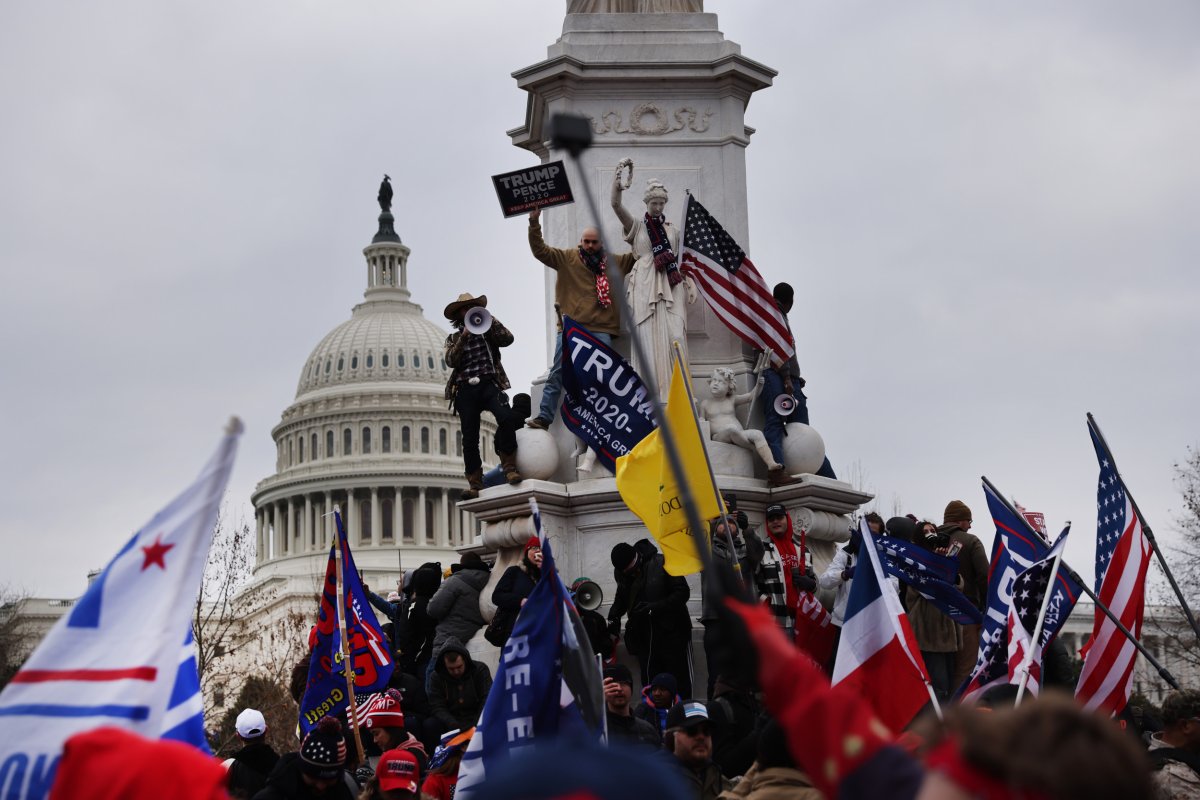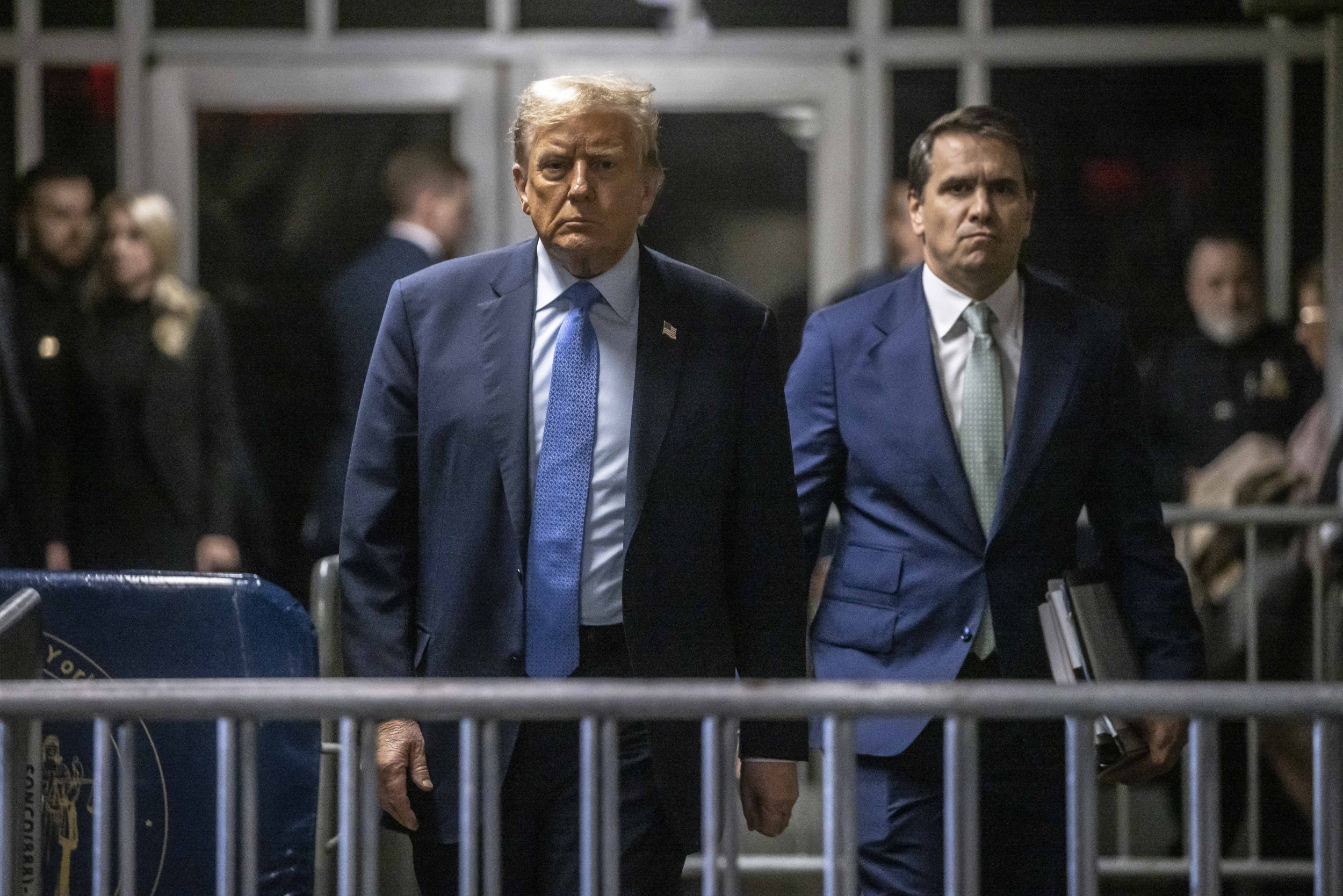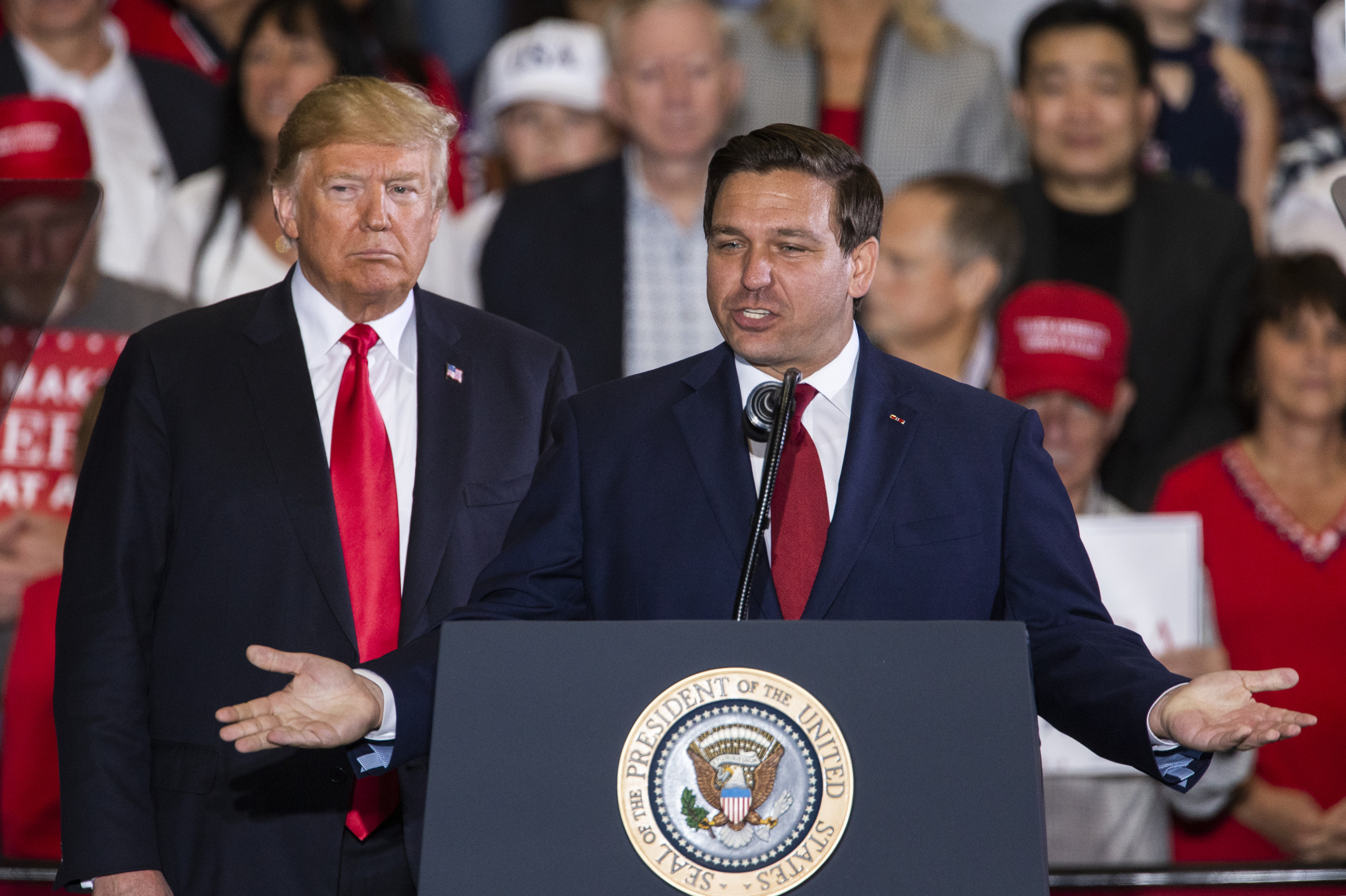The Supreme Court declined on Monday to hear the appeal of Couy Griffin, a former New Mexico county commissioner who was convicted for his role in the January 6, 2021, Capitol attack.
The court's decision not to take the case means the previous ruling, which barred Griffin from holding office in 2022, will stand.
Context:
Thousands of Donald Trump supporters stormed the Capitol building on January 6 in an effort to stop the 2020 presidential election results from being certified in Joe Biden's favor. Trump, without evidence, claimed that the election had been stolen from him via widespread fraud.
In August 2023, Trump was indicted on four counts by the Department of Justice (DOJ) in relation to the riot, including conspiracy to defraud the United States; conspiracy to obstruct an official proceeding; obstruction of and attempt to obstruct an official proceeding; and conspiracy against rights. Trump pleaded not guilty and has said that the case against him is politically motivated as he remains the front-runner for the 2024 GOP presidential nomination.
Griffin, founder of pro-Trump group Cowboys for Trump, was removed from office in 2022 following his criminal conviction over his role in January 6, marking the first time an elected official was removed under the 14th Amendment's "insurrectionist ban" because of the U.S. Capitol riot.
What We Know:
Trump faced legal challenges that sought to remove him from the ballot in several states based on Section 3 of the 14th Amendment, which says that those who previously took an oath to the Constitution while holding a government position but later "engaged in insurrection" cannot hold office.
A lawsuit brought against Griffin by New Mexico residents cited the same constitutional provision, which Trump successfully argued in a separate case could not be used to throw him off the ballot in Colorado.
This led Griffin to hope that a victory for Trump could help his case. However, the unanimous decision for Trump on March 4 said that the ruling only applied to those running for federal office.
"We conclude that states may disqualify persons holding or attempting to hold state office. But states have no power under the Constitution to enforce Section 3 with respect to federal offices, especially the presidency," the court said.
As a result, the court rejected Griffin's appeal on Monday.

Views:
Griffin previously slammed the process that led to his disqualification, while also criticizing the similar cases against Trump.
"This whole thing started on a small scale, with them coming after me, with the specific goal of bringing it up to the big stage with Donald Trump. I was the test case," Griffin told CNN.
Responding to the March 4 ruling on Truth Social, his social media platform, Trump wrote, "BIG WIN FOR AMERICA!!!"
Meanwhile, in the March 4 ruling, the three liberal justices on the bench—Justices Sonia Sotomayor, Elena Kagan and Ketanji Brown Jackson—agreed that no individual state should decide the eligibility of a national candidate, but rejected the idea that the clause should only apply if Congress were to enact a particular legislation pursuant to another section of the 14th Amendment.
What's Next?
Trump is the presumed 2024 GOP presidential nominee and will likely face off with President Joe Biden.
Meanwhile, the U.S. Supreme Court previously announced that it was planning to hear arguments relating to Trump's immunity claims.
Trump was indicted by Special Counsel Jack Smith for alleged attempts to overturn the results of the 2020 election relating to the January 6 riots. However, Trump has claimed in response that he had presidential immunity and cannot be charged with any crimes while he was holding office.
Trump has suggested that he'd like the presidential immunity ruling to come after the 2024 election.
It is currently unclear exactly when the Supreme Court will issue its final ruling on Trump's immunity claims.
Update 3/18/24, 11 a.m. ET: This article has been updated with additional information and background.
Uncommon Knowledge
Newsweek is committed to challenging conventional wisdom and finding connections in the search for common ground.
Newsweek is committed to challenging conventional wisdom and finding connections in the search for common ground.
fairness meter
To Rate This Article
About the writer
Natalie Venegas is a Weekend Reporter at Newsweek based in New York. Her focus is reporting on education, social justice ... Read more
To read how Newsweek uses AI as a newsroom tool, Click here.








